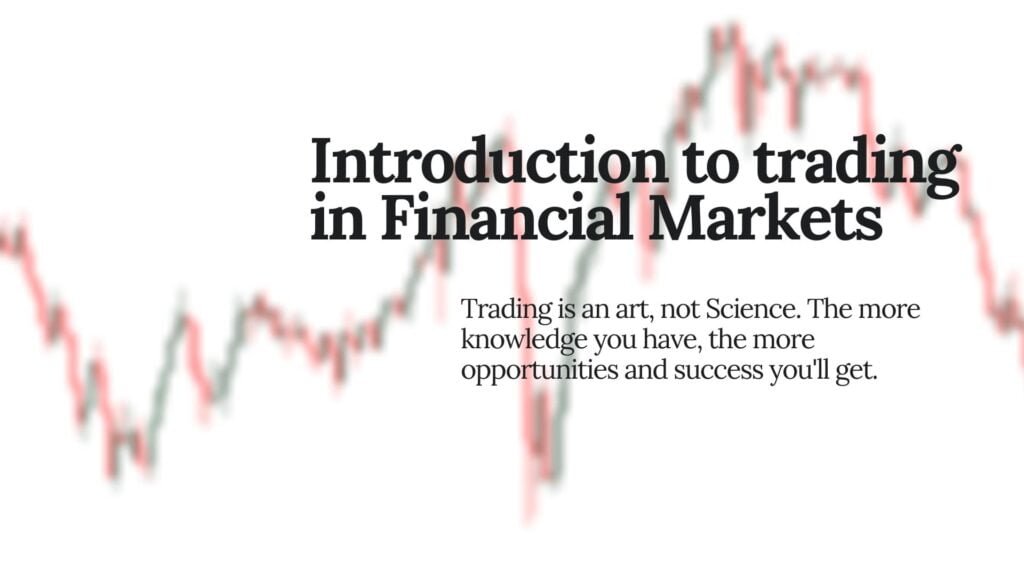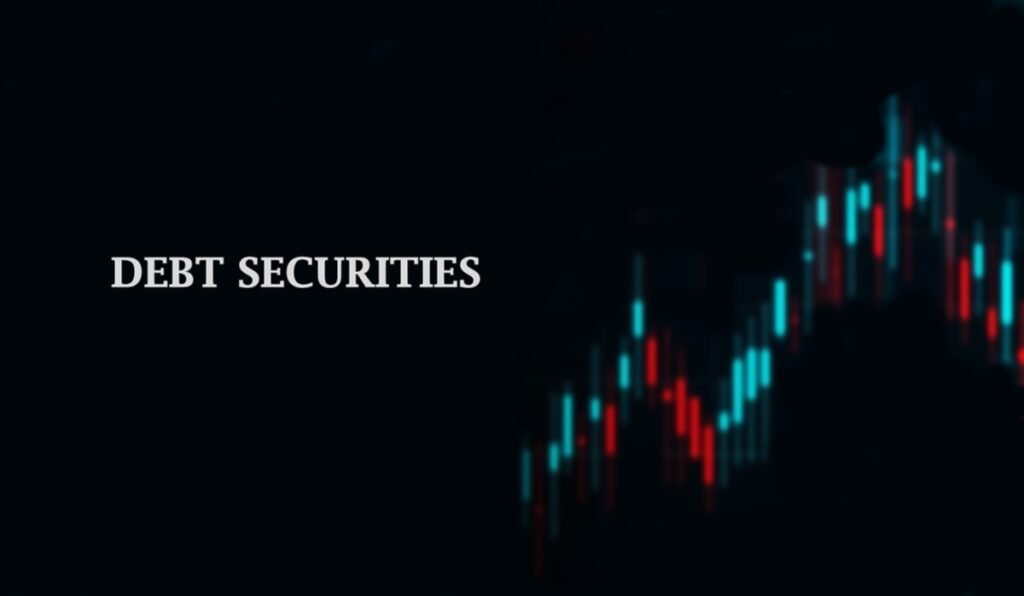
Table of Contents
Introduction
Foreign exchange market is commonly known as Forex Market, where the exchange of currencies takes place among market participants. Sometime, things are simply presented as a simple, but there is more depth recorded. This simple perception of trading currencies makes a normal trader a retailer one which favors the institutions. This market is the most liquid market of the world with nearly 6 trillion dollars of daily volume. The nature of this market is decentralized and platforms are connected through the network of computers. Participants of this market serve multiple financial purpose. Normally, speculation is involved in forming decisions related to trading and investing. However, this is totally wrong perception related to trading and investing. Currencies are traded in pairs and value of one currency is speculated over another. Normally investors and large corporations speculate the currency values by taking into consideration the values of economic indicators. Huge sums of money invested only if the economic indicators favor the investors, large corporation and Banks. Evolution also takes place in this field. With technological advancement, trading is now become an easy task but taking right decisions in trading is quite difficult because of risks attached. This section of the website is determined to make the beginners able to understand the foundations and necessities of trading. This writing is intended to cover the basics attached with Forex Market, later writings will cover the depth and future advancements in Forex Market.
History of Foreign Exchange Market
At first things are simple, then with evolution, more depth come and things become difficult for new members. Evolution in any field of life is inevitable. Evolution gives purity and preciseness to things that are simple. Trading, at first, is simple with Barter System (where services and goods are exchanged for services and goods, no concept of currency or money is involved in it). Apart from its simplicity, there are drawbacks attached with it, led to the development of Currency. Evolution in trading comes with currency. Gold and silver were the standard currencies at that time. However, evolution in this field played phenomenal and paper currency was introduced. Currency of such sort was tied with Gold and promoted stability in trading. However, with the passage of time, things changed and Bretton Wood System introduced.
Bretton Woods System
Modern Capitalist system has its roots in the developments made after WWI. In Financial world, for fixed exchange rates and development of stability in trade, Bretton Woods System was introduced. The two events WWI and WWII shook the world economies and this system was deemed as the solution. This system played an important role in establishment of economic stability in International Monetary System till 1970. The following are key points of Bretton Woods System:
- Countries who participated in the development of the system tied their currencies to US dollar. Dollar was actually backed by Gold. The participated nations obtained fixed exchange rates with dollar.
- International Monetary Fund (IMF) was created for short term financial assistance and exchange rate stability.
- For the reconstruction and development of war affected areas, International Bank for Reconstruction and Development, commonly known as World Bank was created.
- This system made dollar the main and dominated currency. It elevated USA economy.
This system elevated the confidence of participated economies in international trade and finance, and saved them from unfavorable fluctuations in exchange rates. However, with the passage of time and development of trade, this system faced the following problems:
- One of the major problems faced by participated nations is trade imbalance and economic dissimilarity. It became difficult for countries to maintain their fixed exchange rate.
- Geo political event of Vietnam war and US increase spending on the war led to the US dollar deficit. This raise concerns about their gold backing.
Due to the problems and challenges, one final shock (Nixon Shock) ended the system. US president announced suspension of US dollar convertibility to gold. With the end of the system, floating exchanges rate system came into existence.
Road to Decentralization:
Bretton Wood System contained elements of both centralization and decentralization. This system respected nation’s autonomy and based on cooperation. However, its end led to a more decentralized system and limited intervention of government. Floating exchange rate regime was introduced where no single authority controlled the market and no single currency is backed against another. This allowed market to fluctuate on supply and demand rule. There are economic indicators of every country which are specially focused by corporations and long-term investors. The little intervention of government eased the restriction on forex market and allowed more participant to trade foreign exchange markets. This gives more liquidity to the market (Volume). Technological advancement plays pivotal role in this regard. The following are the characteristics of modern forex market:
- Market operates 24 hours and provide three sessions where high liquidity is measured easily. These sessions are Asian Session, London Session, and New York Session.
- Currencies are traded in pairs and both countries have their own economic factors contributing to market movement.
- Market participants contributes to its dept and high liquidity.
- Advance technology and charting tools contributed in influencing trading strategies.
Why US Dollar is still a dominating currency and role of US Dollar Index in determining market strength?
Bretton Woods System ended but its positive effects on US dollar and economy remains same. The following are the factors which is contributing in US dollar dominance:
- The status of US dollar as reserve currency is still enacted. Central banks around the world uses dollar as reserve currency in their foreign currency reserve. This action put an influence on the country’s trade and gives dollar a dominant role.
- USA economy is the recognized and well-established economy in the world. Technological innovations, diverse industries, and stability in institutions contributed to US dollar strength.
- Demand of Dollar plays an important role in its dominance because of two things: First is that Gold and Crude oil is traded in US dollar which increase its demand in foreign exchange market trading, and second is its Financial Market, which contain stock market and bond market, which has high liquidity, and attract investors around the world. This attraction of investors increases demand for US dollar.
Measuring strength of US dollar is an important task when it comes to trading. It helps to trade with confidence the currencies paired with USD like euro, Japanese yen, British pound, Canadian Dollar, New Zealand Dollar, Australian Dollar. These are some of the major currencies paired with US dollar. When fluctuation in USD index eventuate on the basis of US economic and political situation, it also effects the exchange rate between two currencies. The index made the comparison between US dollar and basket of currencies mentioned above. The weight of each currency is based on its contribution and importance in US trade. Following two are the reasons made US dollar index important:
- Index movement is based on performance of US dollar against the basket of currencies. A rising movement of index indicates strength of dollar and decline of Index value presents weakness of US dollar.
- Market use index for broader sentiments. There is a market perception that it is used as an indicator for understanding market strength. According to the perception, US dollar strength or weakness is closely attached with the movement of US dollar index.
System has changed but its lasting impacts has remained till day. The well-established economy still plays an important role in determining the future price of major currencies, metals, and crude oil. Movements in US index is useful for traders and investors in this regard. Remember, an active and smart mindset extensively analyze market by employing various forms of analysis. A single perspective of market often leads to failure.
Concluding remarks
Market has grown widely with the advancement of technology. The advancement of technology captured participants of different category. This writing is intended to the satisfy beginners mindset. Most of the time first exposure of financial markets is US dollar dominated. So, it is indispensable for them to understand the importance of US dollar. Apart from USD pairs, there are many other pairs that are widely traded by retail traders. These pairs are according to their economic indicators and geopolitical events. For becoming a successful trader, it is important to take into account the variables of Financial Markets.
I’m Abdullah Shah, a content writer with three years of experience in crafting engaging and informative content. My background in market analysis complements my work, allowing me to create content that resonates with audiences. I’m also a seasoned practitioner in the forex and crypto markets, with a strong foundation and deep interest in finance. My passion for the financial world drives me to produce content that is both insightful and valuable for those interested in understanding market trends and financial strategies.




